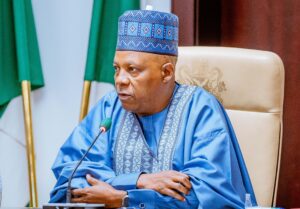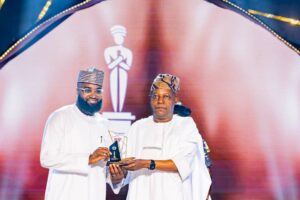Ex WTO official wants more trade negotiators for Nigeria
Prof. Dickson Yeboah, Former Head, Course on Intensive Trade Negotiations Skills, World Trade Organisation (WTO), said that Nigeria needs more skilled negotiators to lift the country out of poverty.
Yeboah said in Abuja that training more trade negotiators would boost the strength of Nigeria’s negotiating team.
“Nigeria is a big country, we need to train 1,000 people who are skillful in negotiations and can negotiate better investment deals for the country.
“Trade negotiation skills is a way out of poverty, recession or economic slowdown,’’ Yeboah said.
He said that a country could not attract better deals if it lacks skilled negotiators.
“So, negotiation skills are key because if a country doesn’t have good negotiators they cannot negotiate better deals for the country.
“They cannot attract anything to the country because they liaise with the outside world and we need to have effective negotiators who will liaise with the outside world and get investments into the country. This is key.
“And it is not just going to talk, it needs preparations, it needs information, research and this is why we are here training Nigerians to be able to negotiate better deals for Nigeria,’’ Yeboah said.
He urged Nigeria to emulate some countries in Asia that have used the course to their advantage.
“Because they know it is a way out of recession, it is a way to advance the economy of a country.
“So, i have strong hopes that if gradually we are able to train more Nigerians in the act of negotiations we attract more investments to Nigeria, this will lead to further creation of jobs and reduction of poverty.
“We need to train more Nigerians in this act of negotiation.
“But this time negotiation is not only about goods, we have intellectual property, we have trade in services, investments, we have agriculture and a whole array of areas which are of interest to Nigeria.
“These days we are in the 21st century, we are no longer in the 80s so certain areas of interest to our partners have shifted.
“For example in 1986, the WTO negotiating the services trade pact negotiated what was called the positive list approach where a country only liberalise and open up the sector it feels comfortable.
“So, if Nigeria was comfortable with tourism, Nigeria will open up only that sector and close other sectors but now in the 21st century, our partners are more interested in using the negative list approach.
“So, if Nigerian negotiators are opened to only the positive which was used in 1986 up to 1993 and there is no clue about the new rule of negotiating, then they are more or less out of the show.
“This is why it is important to expose Nigerians to the new ways of negotiating agreements and keep them abreast of issues,’’ he said.




